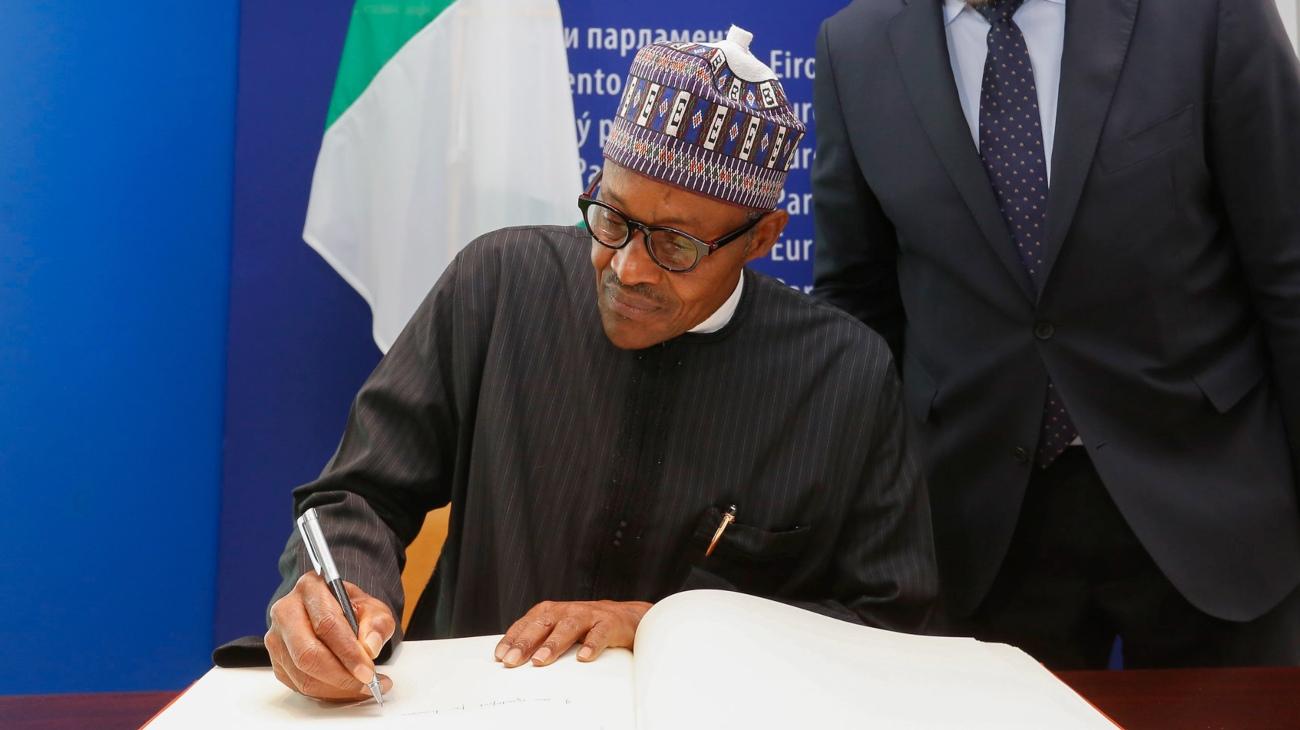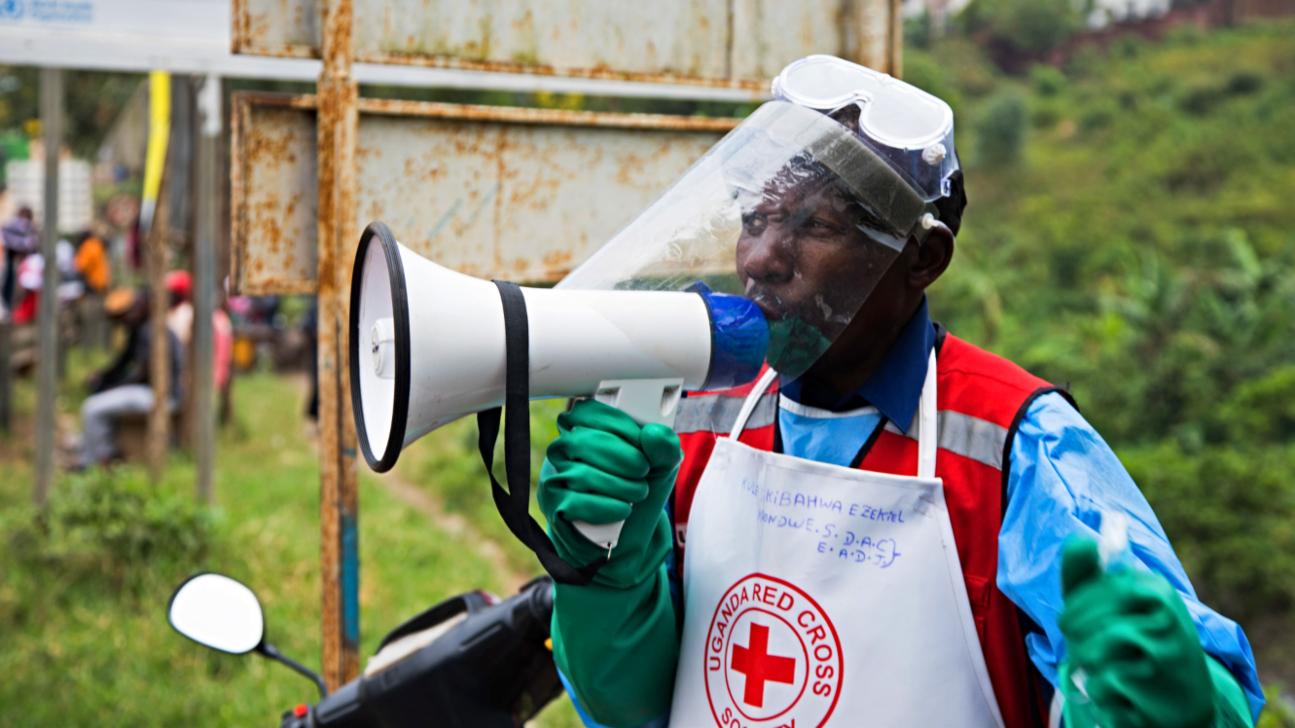Following the shooting of unarmed protesters, the wounds inflicted on Nigerian society by the government’s security agencies in October 2020 will entrench anger and political mistrust. Supporters and critics of President Buhari both cite a lack of vision and leadership for the country, and with no sign the #EndSars protests will calm the country’s future remains uncertain.
Tuesday 20 October 2020 will ever remain memorable in the history of contemporary Nigeria. This was the day members of the Nigerian Army allegedly fired at and killed defenceless citizens protesting peacefully against the brutality and excesses of a special, now disbanded, arm of the Nigerian police, known as the Special Anti-Armed Robbery Squad (SARS). At the last count, at least twelve protesters were killed and many others injured according to a verified twitter handle of Amnesty International in Nigeria. Reports on the number of fatalities vary amidst chances of exaggeration and outright fake news. However, eye witness accounts insist on many more deaths – up to 78, with speculations about missing persons in addition to reports that military men were preventing ambulances from reaching those in need of help and first aid. In the midst of the outrage it is difficult to differentiate the facts from sentiments, emotions and outright misinformation.
Footage circulating the media was simply horrific and gruesome, showing protesters wreaking in pain and shouting for help, some with their stomachs ripped open, others with shattered limbs arising from several degrees of injuries sustained during the exchange that many described as a premeditated massacre. The United Nations Secretary General Antonio Guteres has condemned the attack and sent his condolences to the bereaved families. That the protesters were symbolically waving the national flag as the military reportedly advanced to fire at them was most disheartening. Curiously, a few hours before the attacks some workers were detailed apparently by government agents to switch off all the nearby street lights and dismantle what looked like CCTV, ostensibly to ensure that the place was in darkness.
It was reported that some streets like Jibowu, in the Yaba area of Lagos, were later littered with corpses as the violence escalated the next day when youths took to the streets destroying properties, including houses and cars, and razing a police station in Orile Iganmu. Both the governor of Lagos State, Babajide Sanwolu, as well as the military high command in Nigeria have denied that they gave the order for the military to use live bullets on the protesters.
By this point the protests had lasted for more than ten days and spread beyond Lagos, leading to nationwide hostilities. Killings were recorded in many places including Enugu, Osun, Aba, Onitsha and Benin City. Jail breaks took place successfully in Benin, Warri and Ondo, freeing hundreds of inmates, and an attempted jail break was foiled in Ikoyi, Lagos with many casualties.
Deep anger and mistrust in government
According to some, what started as a mere agitation against police brutality has slowly metamorphosed into a multifaceted and ‘unruly’ movement promoted by a mix of activists, politicians, pretenders, secessionists, looters and even criminals who have seized the space to push their different objectives. Although the details are still unfolding, and remain hazy, no one can nevertheless doubt that the crisis is a consequence of deep citizen (especially youth) anger and lingering frustration against failed expectations and crass institutional decay. It also exposes a government that is not only mistrusted by citizens but which lacks the capacity to calm them through meaningful dialogue and persuasion.
Although the government initially appeared responsive and conceded to the five demands of the protesters, fears remain that the agreements may not be implemented. That the police authorities quickly disbanded SARS in line with popular demand is a commendable departure from what Nigerians are used to in the past with such complaints. Furthermore, the recent reenactment of the Nigerian Police Act 2020 showed some willingness on the part of government to reform. Yet mixed signals and bad faith have been exposed, with indications the government wanted to use divisive tactics to break the ranks of the protesters. For instance, in some locations in Abuja, marked police vehicles were seen conveying thugs and suspected members of militia groups and providing them weapons like cudgels and machetes to enable attacks on protesters.
Regardless of interpretation, ordering the shooting of unarmed civilians on a peaceful protest exposes a leadership that is tyrannical and lacking in empathy. The US Secretary of State has called for prosecution of those involved in the shooting under the law. Despite the denials, citizens are finding it difficult to believe that soldiers can be deployed without clearance from the President. That the President only spoke about it two days later is clearly insensitive and power drunk. His insipid and uninspiring speech might have inadvertently emboldened the criminal elements within the security agencies, which did not even mention the shooting incident. It is horrifying that a blood stained Nigerian flag has become one of the pictorial legacies in the public psyche about the Buhari administration.
Decay in Nigerian security institutions
The #EndSars protests appear to be a representation of a more complex and systemic rot within Nigerian security institutions. Part of the catalysts for such level of institutional decay is the regular skewed recruitment processes where unqualified individuals are allowed to lead strategic positions because they come from a particular part of the country. For instance, in a recent lopsided secret recruitment exercise carried out by the Department of State Services, Nigeria’s secret police, 535 persons (85%) were recruited from the northern part of the country while only 93 persons (15%) came from the south. Even when the news broke, there were no efforts to correct such an anomaly, which goes against the federal character Principle enshrined in the Nigerian Constitution.
It does not appear that end of the #EndSars protests and the accompanying events are in sight. The wounds inflicted in the country by the losses both in human and material terms will take time to heal. The rumbustious bravery and resilience displayed by young Nigerians against forces of repression must be commended. It is a clear vote of no confidence on the current political class in the country. Whether they will be able to convert this energy to lead to political change, however, is still a matter of conjecture. At the end both supporters and critics of President Buhari are coming to the sad conclusion that the ageing leader lacks the courage and competence to provide the visionary leadership the country so badly needs. No one can say where all this will eventually lead.
Photo by Tobi Oshinnaike on Unsplash.





